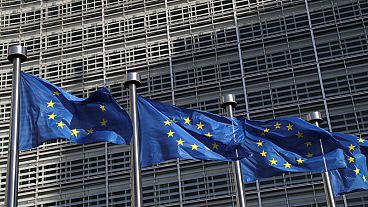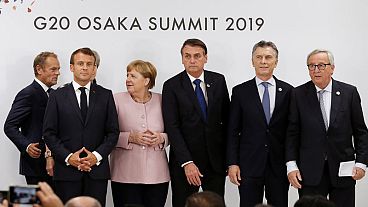By Francesco Guarascio
BRUSSELS (Reuters) - A high share of foreign deposits could be an indicator of money-laundering risks and should be reduced in states that fail to properly monitor them, European Union officials said, as the block grapples with a series of financial scandals at its banks.
So-called non-resident deposits were very high in countries like Latvia, Malta or Cyprus that have been most exposed to recent money-laundering allegations. They have gone down after criminal probes began, European Central Bank data show.
European states should monitor foreign deposit flows, financial services commissioner Valdis Dombrovskis said.
"If those monitoring mechanisms are not strong enough, one of the ways to deal with it is to reduce the share of non-resident deposits, so reduce the money flows," Dombrovskis, a former prime minister of Latvia, said.
Latvian authorities were among the most vocal in Europe in singling out the risks posed by foreign deposits, after allegations of having handled illicit transactions of Russian money brought down ABLV, then the Baltic country's third-largest bank, last year.
After the scandal, Riga set a 5 percent threshold for foreign deposits, which had peaked at about half of all deposits in its banks soon after Latvia joined the euro in 2014.
The target was ditched by the new centre-right government that took power in January, but foreign deposits had meanwhile fallen to nearly 12 percent of the 16 billion euros in overall deposits.
Most euro zone states saw their share of foreign deposits fall in the second half of last year, with the trend beginning just after prosecutors opened a probe in July into Danske Bank for alleged money laundering at its Estonian branch -- which is at the centre of one of the largest-ever money laundering scandals.
Foreign deposits in euro zone banks were down to 1.1 trillion euros (939.4 billion pounds) in December, posting a 12 percent fall from June.
Bucking the trend, in Luxembourg, Ireland, Finland and Portugal foreign deposits have increased. The Grand Duchy has the largest share in the euro zone, with more than 17 percent of deposits at its banks belonging to companies or individuals with residencies outside the bloc -- 63 billion euros in total, about half the amount stored in Germany, the biggest euro zone economy.
NOT ENOUGH
"The level of non-resident deposits can be a useful indictor for anti-money-laundering deficiencies," said German conservative lawmaker Markus Ferber, who leads the parliament's largest grouping in the economic committee of the EU assembly.
He added that foreign deposits also show the attractiveness of a financial centre and therefore should be monitored together with other indicators to provide a complete picture of a country's exposure to money-laundering risks.
This monitoring remains almost completely in the hands of EU states, despite repeated failures of national authorities to tackle cross-border financial crime.
National interests in preserving these sensitive competencies have so far prevailed over calls from the ECB and other supervisors to set up an EU-wide oversight system.
As a result, the EU has acted against lenders at risk of money laundering, like ABLV and Malta's Pilatus Bank, only after alerts were raised in the United States.
The renewed focus on non-resident deposits could signal a stricter approach by some national authorities, although available data are based on the location of firms and not on the residency of their beneficial owners.
That is a flaw that could vastly reduce the amount of reported foreign deposits, argued Joshua Kirschenbaum, who worked at the U.S. Treasury on international money laundering and is now senior fellow at the German Marshall Fund think-tank.
(Reporting by Francesco Guarascio; Editing by Catherine Evans)



